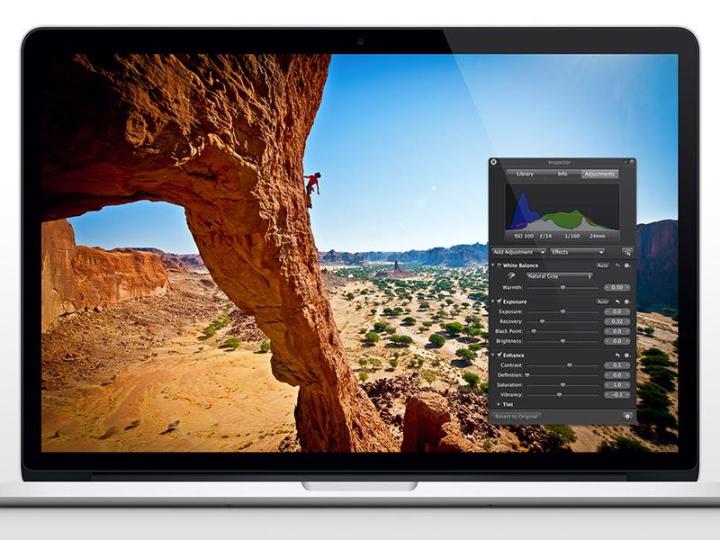
Apple has officially pulled the plug on its professional photo management tool Aperture, focusing all of its attention on the new Photos app coming with OS X Yosemite later this year. The same app will also replace the existing iPhoto as Apple looks to revamp its approach to image handling across computers, devices and the cloud.
While seasoned Aperture users are dismayed at the news, the app — which competed directly with Adobe Lightroom — has not been updated for several years and didn’t look to be part of Apple’s long-term plans. The Cupertino company has confirmed that Aperture will run on Yosemite, though the software will no longer be developed from this point on.
“With the introduction of the new Photos app and iCloud Photo Library, enabling you to safely store all of your photos in iCloud and access them from anywhere, there will be no new development of Aperture,” an Apple spokesperson told TechCrunch. “When Photos for OS X ships next year, users will be able to migrate their existing Aperture libraries to Photos for OS X.”
Parts of the upcoming Photos app were demoed at WWDC. The software will enable users to apply several basic tweaks and effects to their images and manage a constantly updating stream of pictures through iCloud. It’s possible that some of Aperture’s functionality is going to be covered by paid-for add-ons to the main Photos app.
The move doesn’t mean Apple is giving up on professional software altogether. “Apple was very clear when I spoke with them this morning that development on other pro apps like Logic Pro and Final Cut Pro is continuing,” wrote Jim Dalrymple on The Loop. “Professionals in those app categories should not worry about their apps — they will continue as normal.”
Adobe has wasted no time in trying to encourage Aperture users to switch to its Creative Cloud photography package instead, which includes Photoshop and Lightroom. Winston Hendrickson, Vice President of Products and Digital Imaging at Adobe, published a blog post extolling the virtues of his company’s software and encouraging Aperture users to take a look.
Editors' Recommendations
- How to hide photos on an iPhone with iOS 17
- Apple now lets you easily move iCloud Photos content to Google Photos
- Apple’s latest iPhone photo contest asks for your best Night mode images
- Adobe shoots for the future with Photoshop Camera app for iOS and Android
- Apple iPhone 11 Pro camera guide: Take better photos with these tips


